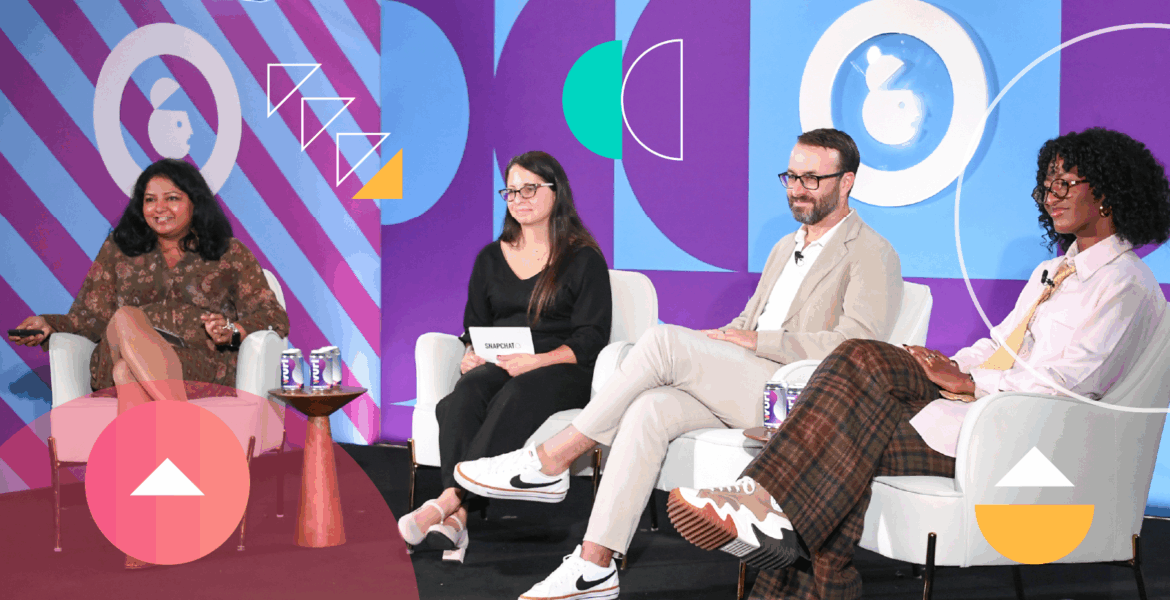Insights from Advertising Week New York reveal why integrity, community, and authenticity now define brand connection
By Heather O’Shea, Chief Research Officer, Alter Agents
At this year’s Advertising Week New York, I joined Aarti Bhaskaran, Global Head of Research and Insights at Snap Inc.; Brad Jansen, President and CEO of Dobbino; and creator and Sr. community engagement manager at Dobbino Kirsten Beach (and our sole Gen Z panelist!) for a conversation that challenged everything we think we know about Gen Z. Our session, “Think You Know Gen Z?”, unveiled new findings from a global study of more than 6,000 Gen Z social platform users across six markets.
The goal was simple but ambitious: move beyond theory and trend lists to uncover what really drives Gen Z: their values, their motivations, and the conditions that make brand relationships meaningful. To get there, we used a multimodal research approach that combined advanced quantitative techniques like MaxDiff analysis, in-context creative testing, and even mock social and shopping experiences. The result was a nuanced, evidence-based view of how Gen Z engages, decides, and buys.
They’re “woke and numb” (and that’s not a contradiction)
This generation has grown up through overlapping crises from social and environmental all the way to economic. And they’ve been told all the while that it’s up to them to fix it all. They care deeply about issues like human rights and equality but are also exhausted by constant pressure to act. During the session, Aarti described this tension as being “both woke and numb” – kind of a self-preservation mechanism. For brands, the takeaway is to acknowledge that balance of optimism and overload, rather than to oversimplify or preach.
Forget lazy, hard work is redefined by Gen Z
Our research upended one of the most common myths: that Gen Z lacks work ethic or that they are lazy. In reality, they place enormous value on effort, adaptability, and self-sufficiency. Over two-thirds of respondents said they respect people with multiple income streams more than those who “made it” via generational wealth. As we discussed on stage, “Nepo babies are out, self-starters are in.” They’re rejecting outdated definitions of success and inventing new ones built around creative hustle and purpose.
Status is about meaning, not money
We also tested the assumption that Gen Z has rejected status altogether. The truth is more interesting: they haven’t abandoned it, but their definition of it is different than you might think. The “material world” made famous by Madonna is in the past; this generation is looking for the embodiment of the values that matter. Experience over possessions, contribution over consumption or, as Aarti said, “Flexing wealth is out; impact is in.” For brands, this means that performative campaigns and privilege signaling fall flat, while purpose-driven action and storytelling rise to the top.
Integrity, expression, and community drive loyalty
Gen Z’s values are clear and they directly guide behavior. In the study, six in ten said they’ll only buy from brands that share their values, particularly honesty, trust, and respect. They want brands to be transparent about what they stand for, to “walk the talk,” and to contribute to the communities they care about. For this cohort, there’s no brand loyalty without integrity. They don’t expect perfection, but they do expect honesty and they can spot insincerity instantly. This can be a tricky line for brands because this generation is so diverse, their values are not homogenous. So a brand really needs to find its niche and be authentic to the message and the actions that align.
Legacy brands may just be dormant
Despite popular belief, Gen Z hasn’t written off legacy brands. They’re just waiting for them to show up authentically. In our testing, even older brands gained relevance when they aligned messaging and creative with Gen Z’s values and motivations. They don’t need to pretend to be new, but rather rediscover purpose in a way that feels real and relatable. As we found, creator-led, platform-native content plays a role in bridging credibility and creativity in a way traditional advertising can’t.
The takeaway: embrace the contradictions
Gen Z isn’t one thing and that’s exactly the point. They can be pragmatic and idealistic, ambitious and burnt out, skeptical and deeply loyal when you earn it. Our study reinforced that what moves them isn’t the latest trend but enduring values: integrity, expression, community, and authenticity.
About the Author
Heather O’Shea is a passionate insights leader with over 17 years of experience in market research and consumer insights. She has held positions at media agencies, publishers, tech platforms and research companies. She is currently the Chief Research Officer of Alter Agents, where she oversees the research functions within the company. Prior to this, she was the head of global ad research & insights at Snap. www.alteragents.com











